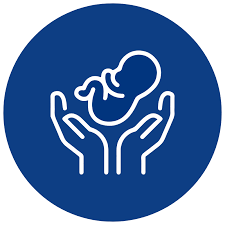+918042757060

This is your website preview.
Currently it only shows your basic business info. Start adding relevant business details such as description, images and products or services to gain your customers attention by using Boost 360 android app / iOS App / web portal.
Description
Caring for a newborn can feel overwhelming, but with some basic knowledge and preparation, you can ensure your baby stays healthy, safe, and comfortable. Here's a guide to newborn care: 1. Feeding: Breastfeeding: The World Health Organization recommends exclusive breastfeeding for the first 6 months. Breast milk provides all the essential nutrients and antibodies your newborn needs. Feed on demand, typically every 2 to 3 hours. Ensure proper latch to avoid nipple soreness. Keep the baby’s head and body aligned while breastfeeding. Formula Feeding: If you are formula feeding, prepare the formula according to the instructions on the packaging. Most newborns will need 2-3 ounces of formula every 3-4 hours. Hold the bottle at an angle so the nipple fills with formula to avoid air intake. Discard any leftover formula after each feeding. Burping: After each feed, gently burp your baby to release any air swallowed during feeding. Hold your baby upright and gently pat or rub their back. 2. Sleeping: Sleep Patterns: Newborns sleep a lot, often 16-18 hours per day, but in short bursts. They may wake every 2-3 hours for feeding. Safe Sleep: Follow these guidelines to reduce the risk of Sudden Infant Death Syndrome (SIDS): Lay your baby on their back to sleep (every time). Use a firm mattress in the crib (avoid soft bedding, pillows, or stuffed animals). Keep the room at a comfortable temperature, and avoid overheating your baby. Sleep Environment: Use a bassinet or crib near your bed for easy access during nighttime feeds. Avoid co-sleeping to reduce the risk of accidental suffocation. 3. Diapering: Frequent Diaper Changes: Newborns typically need their diapers changed every 2-3 hours, or when wet or soiled. This helps prevent rashes and discomfort. Diaper Rash Prevention: Use a gentle diaper rash cream or ointment, especially if your baby’s skin becomes irritated. Let the skin breathe by giving your baby some diaper-free time. Cleaning: When changing diapers, wipe from front to back (especially for girls) to prevent infections. Use sensitive baby wipes or lukewarm water with a soft cloth. 4. Bathing and Hygiene: Sponge Baths: For the first few weeks, until the umbilical cord stump falls off, give your newborn sponge baths using a soft cloth and lukewarm water. Umbilical Cord Care: Keep the umbilical stump clean and dry. Avoid covering it with a diaper. The stump usually falls off within 1-2 weeks. Regular Bathing: After the cord stump falls off, you can give your baby a gentle bath in a baby bathtub. Use mild baby soap and a soft washcloth. Keep Baby’s Nails Trimmed: Newborns have sharp nails that may scratch themselves. Use baby nail clippers or a soft emery board to trim them carefully. 5. Bonding and Comforting: Skin-to-Skin Contact: Hold your baby close for bonding through skin-to-skin contact. It helps with emotional development and can calm a fussy baby. Crying and Soothing: Newborns cry to express needs like hunger, discomfort, or tiredness. If your baby is crying, try: Feeding or changing their diaper. Rocking or swaddling them gently. Offering a pacifier (if appropriate). Speaking softly or playing calming sounds (white noise). Swaddling: Swaddling can help your baby feel secure, but make sure it’s not too tight around the hips. Swaddle them in breathable fabrics like cotton. 6. Health and Safety: Checkups and Vaccinations: Schedule regular pediatric visits for wellness checks, vaccinations, and developmental monitoring. The first checkup is typically within the first week of life. Temperature: Monitor your baby’s temperature with a thermometer. A normal temperature for a newborn is between 97.8°F and 100.4°F (36.5°C and 38°C). If your baby has a fever or appears unusually cold, contact your pediatrician immediately. Umbilical Cord Stump Care: Make sure it stays clean and dry until it falls off naturally, which usually happens within the first few weeks. Vaccinations: Ensure your newborn receives the necessary vaccinations according to your pediatrician's recommendations. 7. Tummy Time: Tummy time is essential for developing strong muscles. Start tummy time for short periods (about 2-3 minutes) as soon as your baby is born, gradually increasing the duration. This helps prevent flat head syndrome (positional plagiocephaly). 8. Signs to Call a Doctor: Fever: If your newborn’s temperature exceeds 100.4°F (38°C), seek medical attention. Difficulty Feeding or Breathing: If your baby has trouble breathing or feeding, or seems unusually lethargic, contact a doctor immediately. Jaundice: If your baby’s skin or eyes appear yellow, notify your pediatrician as it can indicate jaundice. Excessive Crying or Irritability: If your baby’s crying seems excessive or if they are difficult to soothe, consult a doctor to rule out any health concerns. Final Thoughts: Being a new parent can be challenging, but with patience and care, you'll learn the ins and outs of newborn care. Trust your instincts, ask for help when needed, and don’t hesitate to reach out to a healthcare provider if you're ever concerned about your baby’s health or well-being.

